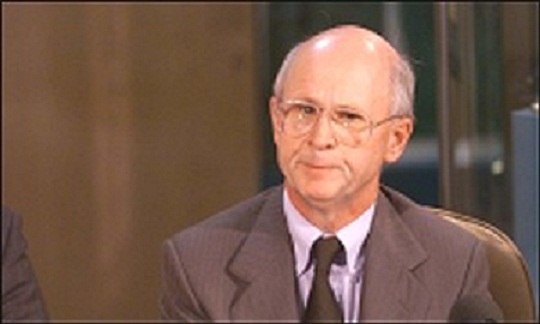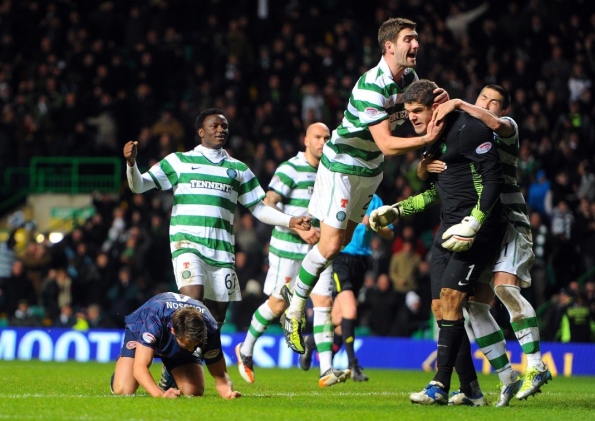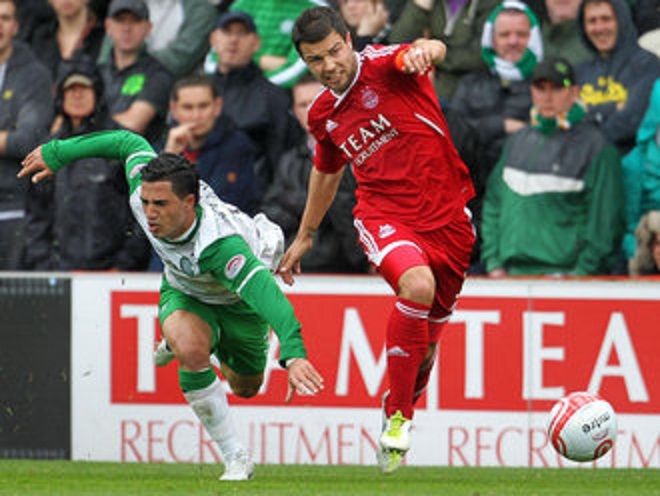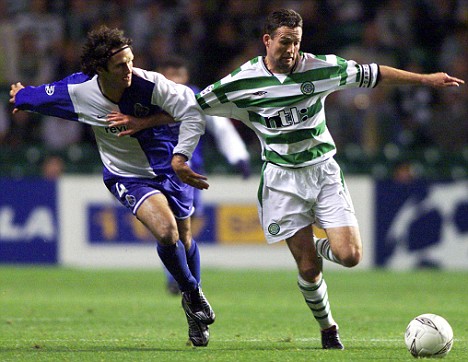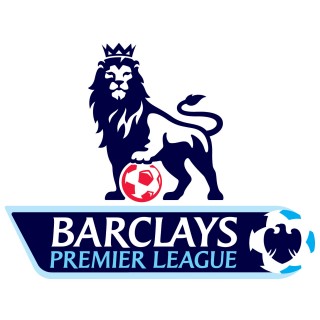Two men, more than any embody the different philosophies and practices of both clubs. The only thing that Fergus McCann and David Murray have in common is that they acquired the biggest clubs in Scotland at the correct point in the economic cycle.
Fergus McCann came in with a concrete plan which had a defined time span and clear objectives, in the process he made a lot of money for himself and saved the club. David Murray had no such plan, merely a vaguely defined ‘vision’ for the future. McCann gave himself five years at Celtic, everything he promised in terms of infrastructure and a secure financial future, he delivered.
We now learn with the gift of hindsight backed up with facts that much of the initial ‘success’ that Rangers achieved under Murray, was done on the back of borrowed money and reckless spending.
Both men came to power at a time when money was cheap, historic low interest rates and much more disposable income for the average supporter. There was one major difference however, whereas Murray already had a newly refurbished stadium courtesy of the previous incumbents, McCann had no such luxury. He was starting with a blank canvas so to speak, and he quickly identified the rebuilding of Celtic Park as the top priority. He had no choice given the dilapidated state of Paradise and government legislation following the Taylor report. At that time there was a raging debate between Celtic supporters and the Board whether the revamping of Celtic Park should be the top priority given the complete dominance of Rangers in Murray’s first chapter at Ibrox.
Hindsight is a great thing, but time has shown that McCann got it right and Murray got it disastrously wrong, hence the present local difficulties that Govan’s finest now face. McCann surrounded himself with professionals and sound investors. Celtic had and still has a broad and balanced group of individuals who run Celtic and have the club’s best interests at heart, Rangers do not have that luxury.
Under McCann Celtic became a professionally run club with the board drawn from the banking sector and other financial areas. Rangers was completely at the mercy of David Murray’s personal whim. Celtic was even criticized at the time for its decision to become a PLC, even though the safeguards which it provides prevented the club from going down the path of economic ruin.
David Murray thought otherwise.
As early as 2002, Hugh Adam a man who had given sterling service through the years to Rangers, issued a stark warning to Rangers’ supporters about the future financial disaster that awaited the club if Murray did not change course. Just before he dumped his 59.000 shares in the club, he stated presciently that bankruptcy was the only logical outcome for a club ‘in financial free-fall”.
Mr Adam despite generating vast amounts of money through Rangers pools pre- Murray (70 million in today’s money) was dismissed as a doddery old dinosaur.
There is also another salient factor which often escapes our attention, namely that Fergus McCann was a boyhood Celtic supporter, whereas Murray’s first love was rugby. Rangers came to him late and by a stroke of good fortune.
Murray also had the benefit of enjoying a very close, some might say incestuous relationship with his banking friends in his Edinburgh base. The very same bankers who would lead their own financial institutions over the abyss twenty years later. Interestingly, McCann made his fortune far from his native Croy. His biggest backer Dermott Desmond was an Irishman who made his pile in Dublin as a financier and speculator. Brian Quinn was deputy governor of the Bank of England with no connection to Murray’s coterie of golf playing, bead counters in Auld Reekie. In short, McCann surrounded himself with heavyweights who ensured Celtic would succeed.
However, even with McCann’s astute business acumen all of what was achieved could never have been achieved without the one vital ingredient.
The Celtic support.
Fergus McCann enjoys an ambivalent relationship with Celtic fans to this day.
Even now you will get a very mixed assessment on the wee man’s five year tenure at Celtic Park. There are still those who harbour resentment and anger regarding his role at Celtic. One would like to think that given the Rangers debacle, and with the benefit of time and distance, there is a greater appreciation of his achievements.
As has already been pointed out, McCann was a Celtic supporter from childhood and that is central to him understanding his task. In today’s jargon, one could say he knew his ‘target audience’ in a way the likes of David Murray never could. From his days as the humble Celtic bus conveynor, McCann instinctively knew that when the shares were issued the Celtic support would respond in massive numbers. Upon his departure, McCann also insisted that preference shares be given to small shareholders (ordinary Celtic supporters) than large institutions. In one of his rare moments of honesty and candour, Murray berated Rangers’ fans for not showing the same degree of commitment as Celtic supporters after yet another unsuccessful shares issue.
When one compares McCann’s leadership to Murray’s modus operandi, namely franchising large sections of Ibrox for personal gain, the implication is obvious.
In summary, the differing fortunes of the two clubs has not happened by chance but by design. The crude caricature of McCann and the biscuit tin was indeed just that, a stupid misrepresentation of the man and his achievments.
If the Scottish press is looking for a genuine caricature of greed and self-interest they need look no further than at the present owner of Rangers.
I give you Craig Whyte, the final tragic manifestation of the Murray ‘vision’.
Rangers R.I.P.

